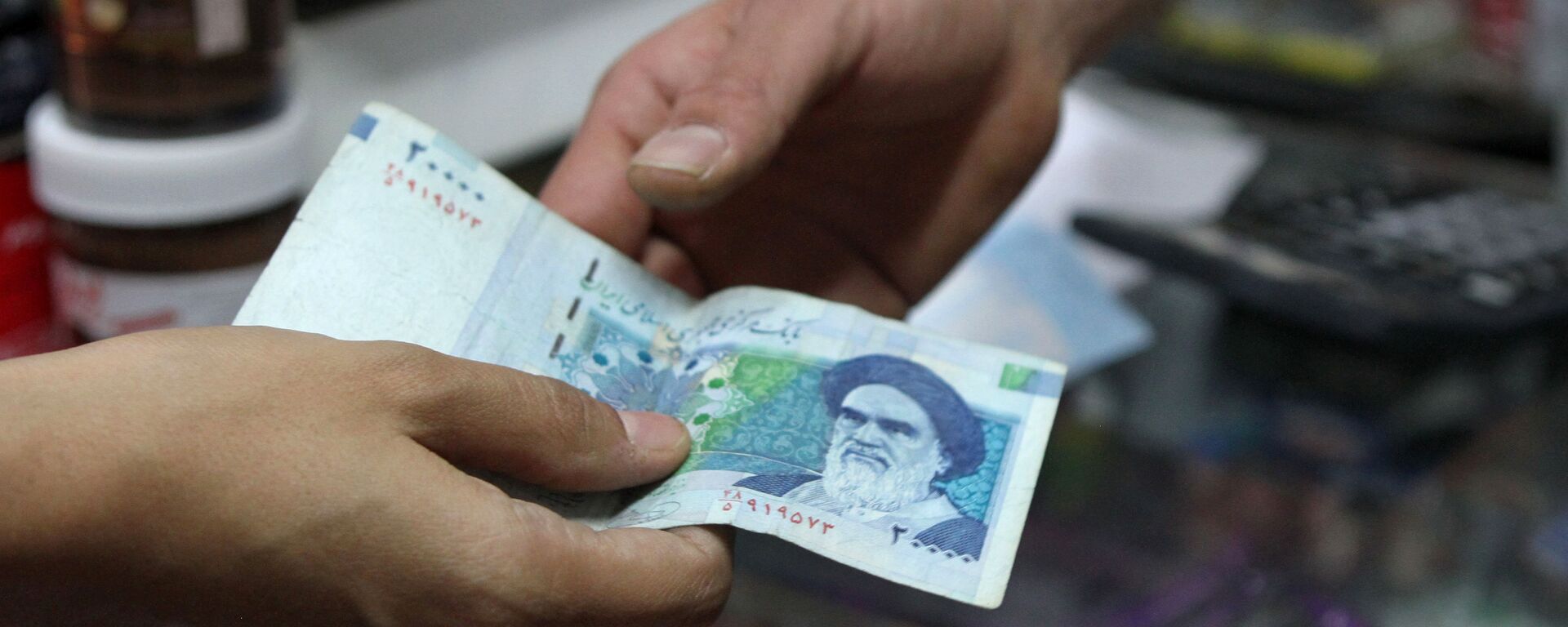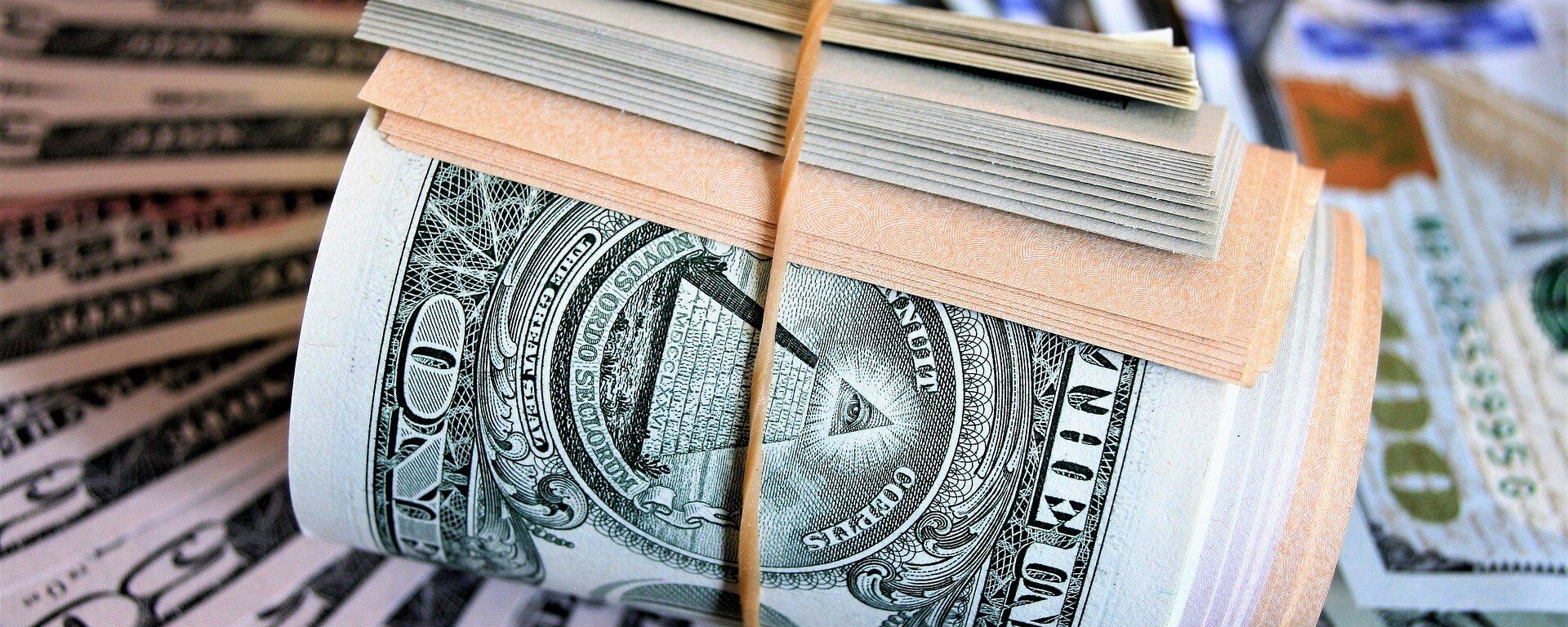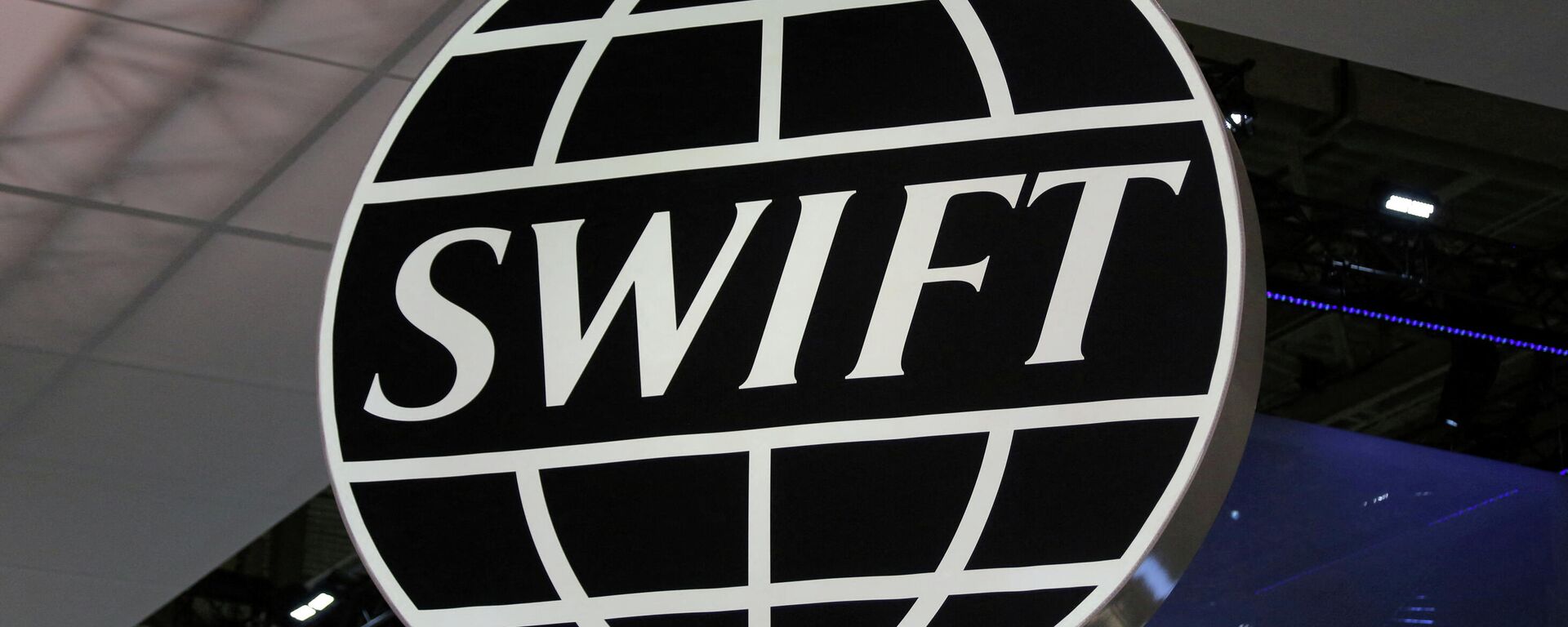
Russia and Iran started to expand the use of national currencies in foreign trade settlements last year against the backdrop of western sanctions slapped on the two countries.
The potential creation of a Persian Gulf Token by Russia and Iran should not threaten the dollar’s hegemony in the immediate term, but the initiative could help weaken it over time by encouraging other countries to pursue asset-backed currencies, Chris Devonshire-Ellis, chairman of Dezan Shira & Associates, a pan-Asian investment firm, has told Sputnik.
“It may not just be gold. It could be other material assets, such as hydrocarbons, agriculture, other precious metals, gems and even fresh water,” he said.
The chairman of Dezan Shira & Associates added that, “Obviously in terms of gold, the countries to benefit would be those possessing large unmined gold reserves, such as Australia, Russia, South Africa, Indonesia, and Brazil.”
Devonshire-Ellis explained that the emergence of a larger network of asset-backed tokens could help nations bypass western sanctions by providing them with an alternative to the SWIFT banking system, the US dollar, and the euro.
“Countries such as Venezuela, also heavily sanctioned but possessing the world’s largest oil reserves, would be keen to see this type of technological development,” he said.
He was echoed by Paul Goncharoff, cryptocurrency research director at Dezan Shira & Associates in Moscow, who described the possible creation of a Persian Gulf Token as a “tectonic shift”, which would have serious implications not only for the US dollar but also for central banks around the world.

He pointed out that the emergence of an asset-based token would present a serious challenge to traditional fiat currencies by providing “a very appealing safe haven alternative that cannot be weaponized against the owners and users of such tokens.”
Goncharoff argued: “Should this governmentally supported asset-backed token be officially launched and come into actively traded use, it will not be without significant resistance from several governments and the financial infrastructures that support trade in their fiat currencies.”
He said that he “would expect that this could get quite ugly, with exclusion zones set up in traditional banking venues such as New York, London, Frankfurt, Tokyo, and similar,” adding, “After all, hot wars have been started for less.”
The comments come after a Russian media outlet reported that Moscow and Tehran are discussing the creation of a Persian Gulf token that could replace the dollar, the ruble and the rial in foreign trade transactions.
The outlet quoted Alexander Brazhnikov, executive director of the Russian Association of the Cryptoindustry and Blockchain, as saying that the token will be used as a stablecoin, a digital currency that is pegged to a “stable” reserve asset like the US dollar or gold.

He added that a special economic zone in the southern Russian city of Astrakhan would begin to receive cargo from Iran later this year, something that is expected to kick off the use of the Gulf token.
Alexei Voylukov, vice president of the Association of Banks of Russia, for his part, recalled in an interview with a separate Russian media outlet that currently, there are settlements in dollars between Russia and Iran, but due to sanctions, payments are made in the two countries’ national currencies.
According to him, the rapprochement between the two makes it possible to establish almost any system of payments between them. Sputnik has reached out to the Central Banks of Russia and Iran for comments on the matter.
In July 2022, Iranian Economic Minister Ehsan Khandouzi announced that the Islamic Republic officially ditched the US dollar for trade with Russia. The same month, the Tehran Stock Exchange launched rial-ruble trading.

This came after an array of major Russian banks were disconnected from the SWIFT international payment system as part of western sanctions against Russia, which were imposed shortly after Moscow launched its special military operation in Ukraine on February 24, 2022.
In 2019, SWIFT cut access for most Iranian banks under pressure from Washington, which earlier reinstated harsh economic sanctions against the Islamic Republic following then-US President Donald Trump’s announcement to unilaterally withdraw from the 2015 Iran nuclear deal, also known as the Joint Comprehensive Plan of Action (JCPOA).
By Oleg Burunov
Published by Sputnik News
Republished by The 21st Century
The views expressed in this article are solely those of the author and do not necessarily reflect the opinions of 21cir.com.
